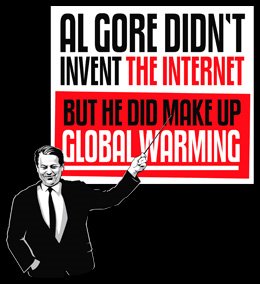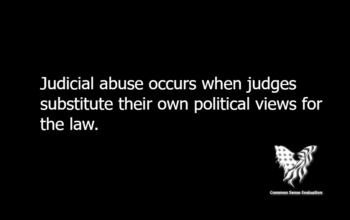Global Warming, now re-branded “Climate Change”, has always been nothing more than a government money grab. It should have been re-branded as “Gorebull Warming”.
If Bullshit was snow, Al Gore would be a blizzard!
From Watts Up With That?:
FAILED CLIMATE PREDICTIONS (and some related stupid sayings)
1. “Due to global warming, the coming winters in the local regions will become milder.”
Stefan Rahmstorf, Potsdam Institute of Climate Impact Research, University of Potsdam, February 8, 2006****
2. “Milder winters, drier summers: Climate study shows a need to adapt in Saxony Anhalt.”
Potsdam Institute for Climate Impact Research, Press Release, January 10, 2010.****
3. “More heat waves, no snow in the winter… Climate models… over 20 times more precise than the UN IPCC global models. In no other country do we have more precise calculations of climate consequences. They should form the basis for political planning… Temperatures in the wintertime will rise the most… there will be less cold air coming to Central Europe from the east…In the Alps winters will be 2°C warmer already between 2021 and 2050.”
Max Planck Institute for Meteorology, Hamburg, September 2, 2008.
****
4. “The new Germany will be characterized by dry-hot summers and warm-wet winters.”
Wilhelm Gerstengarbe and Peter Werner, Potsdam Institute for Climate Impact Research (PIK), March 2, 2007****
5. “Clear climate trends are seen from the computer simulations. Foremost the winter months will be warmer all over Germany. Depending of CO2 emissions, temperatures will rise by up to 4°C, in the Alps by up to 5°C.”
Max Planck Institute for Meteorology, Hamburg, 7 Dec 2009.****
6. “In summer under certain conditions the scientists reckon with a complete melting of the Arctic sea ice. For Europe we expect an increase in drier and warmer summers. Winters on the other hand will be warmer and wetter.”
Erich Roeckner, Max Planck Institute, Hamburg, 29 Sept 2005.****
7. “The more than ‘unusually ‘warm January weather is yet ‘another extreme event’, ‘a harbinger of the winters that are ahead of us’. … The global temperature will ‘increase every year by 0.2°C’”
Michael Müller, Socialist, State Secretary in the Federal Ministry of Environment,
Die Zeit, 15 Jan 2007****
8. “Harsh winters likely will be more seldom and precipitation in the wintertime will be heavier everywhere. However, due to the milder temperatures, it’ll fall more often as rain than as snow.”
Online-Atlas of the Helmholtz-Gemeinschaft, 20109. “We’ve mostly had mild winters in which only a few cold months were scattered about, like January 2009. This winter is a cold outlier, but that doesn’t change the picture as a whole. Generally it’s going to get warmer, also in the wintertime.”
Gerhard Müller-Westermeier, German Weather Service (DWD), 26 Jan 2010****
10. “Winters with strong frost and lots of snow like we had 20 years ago will cease to exist at our latitudes.”
Mojib Latif, Max Planck Institute for Meteorology, Hamburg, 1 April 2000****
11. “Good bye winter. Never again snow?”
Spiegel, 1 April 2000****
12. “In the northern part of the continent there likely will be some benefits in the form of reduced cold periods and higher agricultural yields. But the continued increase in temperatures will cancel off these benefits. In some regions up to 60% of the species could die off by 2080.”
3Sat, 26 June 2003
****
13. “Although the magnitude of the trends shows large variation among different models, Miller et al. (2006) find that none of the 14 models exhibits a trend towards a lower NAM index and higher arctic SLP.”
IPCC 2007 4AR, (quoted by Georg Hoffmann)****
14. “Based on the rising temperature, less snow will be expected regionally. While currently 1/3 of the precipitation in the Alps falls as snow, the snow-share of precipitation by the end of the century could end up being just one sixth.”
Germanwatch, Page 7, Feb 2007****
15. “Assuming there will be a doubling of CO2 in the atmosphere, as is projected by the year 2030. The consequences could be hotter and drier summers, and winters warmer and wetter. Such a warming will be proportionately higher at higher elevations – and especially will have a powerful impact on the glaciers of the Firn regions.”
and
“ The ski areas that reliably have snow will shift from 1200 meters to 1500 meters elevation by the year 2050; because of the climate prognoses warmer winters have to be anticipated.”
Scinexx Wissenschaft Magazin, 26 Mar 2002****
16. “Yesterday’s snow… Because temperatures in the Alps are rising quickly, there will be more precipitation in many places. But because it will rain more often than it snows, this will be bad news for tourists. For many ski lifts this means the end of business.”
Daniela Jacob, Max Planck Institute for Meteorology, Hamburg, 8 Aug 2006****
17. “Spring will begin in January starting in 2030.”
Die Welt, 30 Sept 2010****
18. “Ice, snow, and frost will disappear, i.e. milder winters” … “Unusually warm winters without snow and ice are now being viewed by many as signs of climate change.”
Schleswig Holstein NABU, 10 Feb 2007****
19. “Good bye winter… In the northern hemisphere the deviations are much greater according to NOAA calculations, in some areas up to 5°C. That has consequences says DWD meteorologist Müller-Westermeier: When the snowline rises over large areas, the bare ground is warmed up even more by sunlight. This amplifies global warming. A process that is uncontrollable – and for this reason understandably arouses old childhood fears: First the snow disappears, and then winter.”
Die Zeit, 16 Mar 2007****
20. “Warm in the winter, dry in the summer … Long, hard winters in Germany remain rare: By 2085 large areas of the Alps and Central German Mountains will be almost free of snow. Because air temperatures in winter will rise more quickly than in summer, there will be more precipitation. ‘However, much of it will fall as rain,’ says Daniela Jacob of the Max Planck Institute for Meteorology.”
FOCUS, 24 May 2006****
21. “Consequences and impacts for regional agriculture: Hotter summers, milder plus shorter winters (palm trees!). Agriculture: More CO2 in the air, higher temperatures, foremost in winter.”
Dr. Michael Schirmer, University of Bremen, presentation of 2 Feb 2007****
22. “Winters: wet and mild”
Bavarian State Ministry for Agriculture, presentation 23 Aug 2007****
23. “The climate model prognoses currently indicate that the following climate changes will occur: Increase in minimum temperatures in the winter.”
Chamber of Agriculture of Lower Saxony Date: 6 July 2009****
24. “Both the prognoses for global climate development and the prognoses for the climatic development of the Fichtel Mountains clearly show a warming of the average temperature, whereby especially the winter months will be greatly impacted.”
Willi Seifert, University of Bayreuth, diploma thesis, p. 203, 7 July 2004****
25. “Already in the year 2025 the conditions for winter sports in the Fichtel Mountains will develop negatively, especially with regards to ‘natural’ snow conditions and for so-called snow-making potential. A financially viable ski business operation after about the year 2025 appears under these conditions to be extremely improbable (Seifert, 2004)”.
Andreas Matzarakis, University of Freiburg Meteorological Institute, 26 July 2006****
26. “Skiing among palm trees? … For this reason I would advise no one in the Berchtesgadener Land to invest in a ski-lift. The probability of earning money with the global warming is getting less and less.”
Hartmut Graßl, Director Emeritus,
Max Planck-Institute for Meteorology, Hamburg, page 3, 4 Mar 2006****
27. “Climate warming leads to an increasingly higher snow line. The number of future ski resorts that can be expected to have snow is reducing. […] Climate change does not only lead to higher temperatures, but also to changes in the precipitation ratios in summer and winter. […] In the wintertime more precipitation is to be anticipated. However, it will fall more often as rain, and less often as snow, in the future.”
Hans Elsasser, Director of the Geographical Institute of the University of Zurich, 4 Mar 2006****
28. “All climate simulations – global and regional – were carried out at the Deutschen Klimarechenzentrum [German Climate Simulation Center]. […] In the winter months the temperature rise is from 1.5°C to 2°C and stretches from Scandinavia to the Mediterranean Sea. Only in regions that are directly influenced by the Atlantic (Great Britain, Portugal, parts of Spain) will the winter temperature increase be less (Fig. 1).”
Max Planck Institute for Meteorology, Press Release, Date: December 2007/January 2013.****
29. “By the year 2050 … temperatures will rise 1.5ºC to 2.5°C (summer) and 3°C (winter). … in the summer it will rain up to 40% less and in the winter up to 30% more.
German Federal Department of Highways, 1 Sept 2010****
30. “We are now at the threshold of making reliable statements about the future.”
Daniela Jacob, Max Planck Institute for Meteorology, Hamburg, page 44, 10/2001****
31. “The scenarios of climate scientists are unanimous about one thing: In the future in Germany we will have to live with drier and drier summers and a lot more rain in the winters.”
Gerhard Müller-Westermeier, German Weather Service (DWD), 20 May 2010****
32. “In the wintertime the winds will be more from the west and will bring storms to Germany. Especially in western and southern Germany there will be flooding.” FOCUS / Mojib Latif, Leibniz Institute for Ocean Sciences of the University of Kiel, 27 May 2006.
****
33. “While the increases in the springtime appear as rather modest, the (late)summer and winter months are showing an especially powerful warming trend.”
State Ministry of Environment, Agriculture and Geology, Saxony, p. 133, Schriftenreihe Heft 25/2009.****
34. “Warm Winters Result From Greenhouse Effect, Columbia Scientists Find, Using NASA Model … Despite appearing as part of a natural climate oscillation, the large increases in wintertime surface temperatures over the continents may therefore be attributable in large part to human activities,”
Science Daily, Dr. Drew Shindell 4 June 1999****
35. “Within a few years winter snowfall will become a very rare and exciting event. … Children just aren’t going to know what snow is.”
David Viner, Climatic Research Unit, University of East Anglia, 20 March 2000****
36. “This data confirms what many gardeners believe – winters are not as hard as they used to be. … And if recent trends continue a white Christmas in Wales could certainly be a thing of the past.”
BBC, Dr Jeremy Williams, Bangor University, Lecturer in Geomatics, 20 Dec 2004****
37. The rise in temperature associated with climate change leads to a general reduction in the proportion of precipitation falling as snow, and a consequent reduction in many areas in the duration of snow cover.”
Global Environmental Change, Nigel W. Arnell, Geographer, 1 Oct 1999****
38. “Computer models predict that the temperature rise will continue at that accelerated pace if emissions of heat-trapping gases are not reduced, and also predict that warming will be especially pronounced in the wintertime.”
Star News, William K. Stevens, New York Times, 11 Mar 2000****
39. “In a warmer world, less winter precipitation falls as snow and the melting of winter snow occurs earlier in spring. Even without any changes in precipitation intensity, both of these effects lead to a shift in peak river runoff to winter and early spring, away from summer and autumn.”
Nature, T. P. Barnett et. al., 17 Nov 2005*****
40. “We are beginning to approximate the kind of warming you should see in the winter season.”
Star News, Mike Changery, National Climatic Data Center, 11 Mar 2000****
41. “Milder winter temperatures will decrease heavy snowstorms but could cause an increase in freezing rain if average daily temperatures fluctuate about the freezing point.”
IPCC Climate Change, 2001****
42. “Global climate change is likely to be accompanied by an increase in the frequency and intensity of heat waves, as well as warmer summers and milder winters…9.4.2. Decreased Mortality Resulting from Milder Winters … One study estimates a decrease in annual cold-related deaths of 20,000 in the UK by the 2050s (a reduction of 25%)”
IPCC Climate Change, 2001****
43. “The lowest winter temperatures are likely to increase more than average winter temperature in northern Europe. …The duration of the snow season is very likely to shorten in all of Europe, and snow depth is likely to decrease in at least most of Europe.”
IPCC Climate Change, 2007****
44. “Snowlines are going up in altitude all over the world. The idea that we will get less snow is absolutely in line with what we expect from global warming.”
WalesOnline, Sir John Houghton – atmospheric physicist, 30 June 2007****
45. “In the UK wetter winters are expected which will lead to more extreme rainfall, whereas summers are expected to get drier. However, it is possible under climate change that there could be an increase of extreme rainfall even under general drying.”
Telegraph, Dr. Peter Stott, Met Office, 24 July 2007****
46. “Winter has gone forever and we should officially bring spring forward instead. … There is no winter any more despite a cold snap before Christmas. It is nothing like years ago when I was younger. There is a real problem with spring because so much is flowering so early year to year.”
Express, Dr Nigel Taylor, Curator of Kew Gardens, 8 Feb 2008****
47. “The past is no longer a guide to the future. We no longer have a stationary climate,”…
Independent, Dr. Peter Stott, Met Office, 27 Jul 2007****
48. “It is consistent with the climate change message. It is exactly what we expect winters to be like – warmer and wetter, and dryer and hotter summers. …the winter we have just seen is consistent with the type of weather we expect to see more and more in the future.”
Wayne Elliott, Met Office meteorologist, BBC, 27 Feb 2007****
49. “ If your decisions depend on what’s happening at these very fine scales of 25 km or even 5 km resolution then you probably shouldn’t be making irreversible investment decisions now.”
Myles Allen, “one of the UK’s leading climate modellers”, Oxford University, 18 June 2009****
50. “It’s great that the government has decided to put together such a scientifically robust analysis of the potential impacts of climate change in the UK.”
Keith Allott, WWF-UK, 18 June 2009****
Plus 57 more at Watts Up With That?



